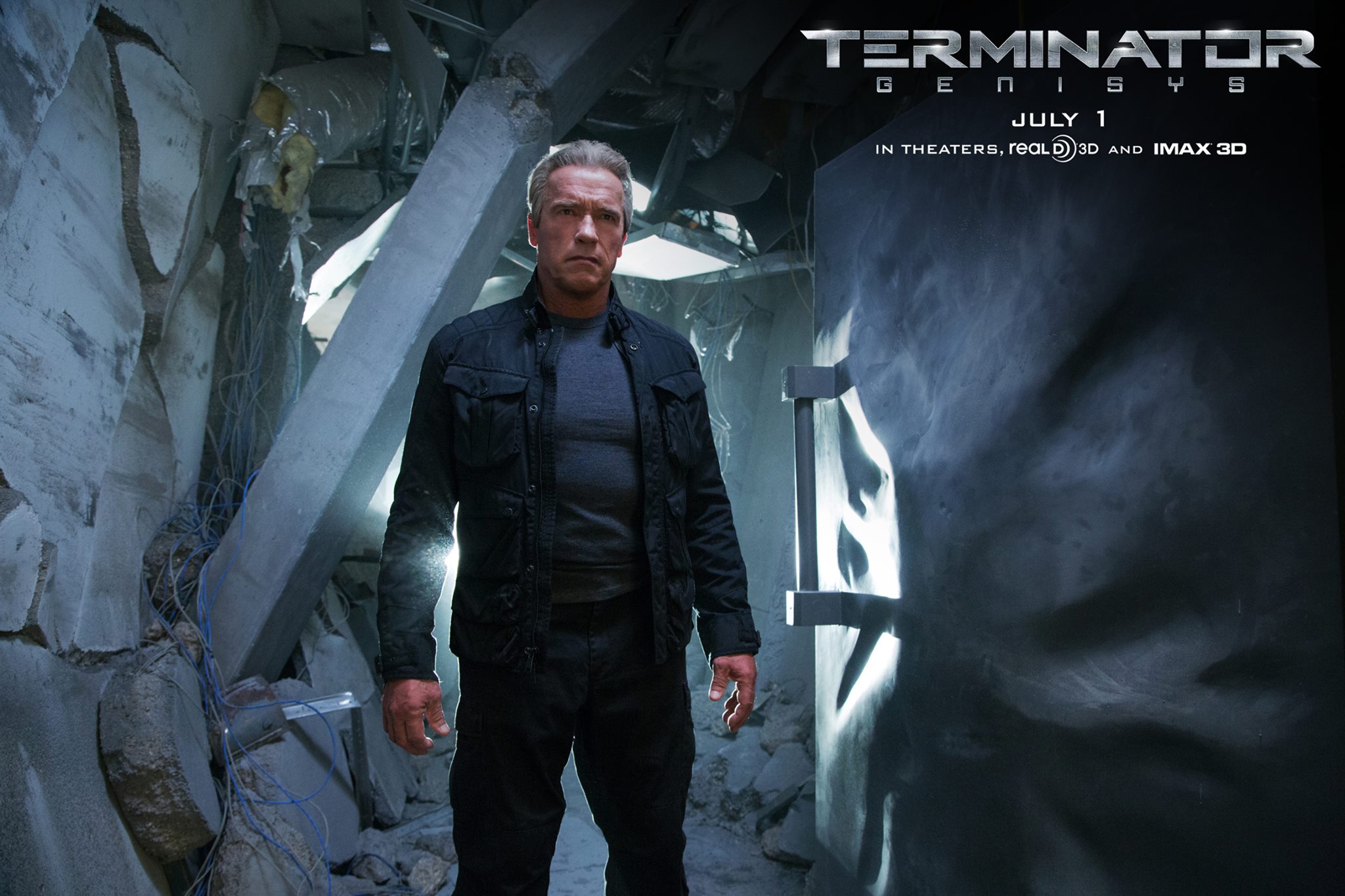He'll be back (again and again): The fascinating, post-political acting career of Arnold Schwarzenegger
Schwarzenegger jumped right back into Hollywood — and embarked on a truly unprecedented career arc


When Arnold Schwarzenegger announced he was running for governor in 2003, he didn't hold a rally or a press conference. He turned up on The Tonight Show — like any actor promoting a new movie — to announce that his next role would be governor of California. Jay Leno smirked, the crowd went wild, and the campaign was off and running. Three months later, Schwarzenegger was swept into office.
That flashy campaign announcement serves as a microcosm for Schwarzenegger's governorship, in which he kept one foot in politics and the other in Hollywood. Right up until the end of his term, those "Governator" jokes never quite went away. And when he left office, he went right back to acting. Last week, at age 67, he topped the fifth installment in the Terminator franchise as an elderly robot nicknamed "Pops."
For a mainstream actor, this is about as strange as a career arc can get. Ronald Reagan didn't finish his second presidential term and make a Bedtime for Bonzo sequel. Al Franken has never even hinted at a post-senatorial follow-up to Stuart Saves His Family. Schwarzenegger's trip from Hollywood to politics to Hollywood is pretty much unprecedented, and his ongoing effort to rebuild the acting career he left behind is fascinating when you examine it in detail.
The Week
Escape your echo chamber. Get the facts behind the news, plus analysis from multiple perspectives.

Sign up for The Week's Free Newsletters
From our morning news briefing to a weekly Good News Newsletter, get the best of The Week delivered directly to your inbox.
From our morning news briefing to a weekly Good News Newsletter, get the best of The Week delivered directly to your inbox.
Schwarzenegger's first "post-gubernatorial" role actually arrived nearly a half-year before he formally left office: a small, uncredited role in 2010's The Expendables, opposite his onetime box-office rival Sylvester Stallone. "I'm busy anyway," says Schwarzenegger, as mercenary Trench Mauser, turning down a job in the movie. When Mr. Church (Bruce Willis) asks what Mauser's problem is, Barney Ross (Sylvester Stallone) replies: "He wants to be president." The subtext is so unsubtle that you can't really call it subtext.
At the end of his second gubernatorial term, Schwarzenegger's real post-politics comeback role was supposed to be much more involved and ambitious: The Governator — a comic book/cartoon series, developed by Marvel Comics legend Stan Lee and based on Schwarzenegger's actual life. Though the real-life Schwarzenegger left office with a dismal 23 percent approval rating, The Governator boldly recast his exit from politics as a triumph. In the lore of the series, Schwarzenegger (voicing himself) left office to become a superhero, complete with a secret lair, a bevy of sidekicks, and a team of villains called the G.I.R.L.I.E. Men.
Ironically enough, this ridiculous-sounding vanity project was derailed by the actual, much more complicated circumstances of Schwarzenegger's post-gubernatorial life. In May 2011, The Los Angeles Times revealed that Schwarzenegger had fathered a child with a woman who had worked in his household. His 25-year marriage to Maria Shriver — who was a supporting character in The Governator — swiftly ended, and everyone involved quietly agreed that this probably wasn't the right time to launch a Schwarzenegger series aimed at children.
With The Governator shelved, Schwarzenegger played his next card more conservatively. By the time The Expendables 2 arrived in 2012, the half-serious presidential ambitions Schwarzenegger winked at in the original Expendables had been put to the side. Instead, he threw himself back into acting with the same gusto he'd shown when he jumped into politics. Schwarzenegger's role in The Expendables 2 wasn't massive, because the throw-everything-at-the-wall approach of the franchise precludes any of its stars from getting more than a few kills and a few quips. But at the very least, Schwarzenegger's role was bigger than his glorified cameo in the original, and The Expendables 2 fared better both critically and commercially.
A free daily email with the biggest news stories of the day – and the best features from TheWeek.com
But if The Expendables movies were a mere toe in the water, Schwarzenegger's first post-gubernatorial starring role, 2013's The Last Stand, was a running dive into the pool. Made for a relatively conservative $45 million, producers hedged their bets on Schwarzenegger by aggressively promoting a small supporting turn by Johnny Knoxville, in an apparent (and misguided) attempt to court the Jackass crowd.
The Last Stand was well within Schwarzenegger's pre-political wheelhouse: an original action/comedy, relying chiefly on Schwarzenegger's time-tested charisma as a box-office draw. Lionsgate clearly hoped that the promise of Schwarzenegger's first starring role in a decade would bring his old fans back to theaters. But The Last Stand — despite its not inconsiderable strengths as a fun little action movie —could hardly have flopped harder. In its opening weekend, it debuted with a little over $6 million domestically, coming in at number nine at the box office — a result so low it dips from "disappointing" to "embarrassing."
The misfires continued from there. Sylvester Stallone — who had previously been wise enough to recognize he wasn't a big enough draw on his own when he spearheaded The Expendables franchise — went head-to-head with Schwarzenegger in 2013's Escape Plan. Like The Last Stand, Escape Plan tanked domestically — but unlike The Last Stand, it managed to make up the difference abroad. 2014's Sabotage, a gritty cop thriller that gambled by putting Schwarzenegger front and center, slunk to a meager $17 million in its worldwide gross. Even The Expendables 3, which brought Schwarzenegger back again, underperformed badly, netting almost $100 million less worldwide than the previous installment.
This is the point at which any rational Hollywood executive should have reached the obvious conclusion: Despite the glory of his previous run as the biggest action star in Hollywood, Schwarzenegger simply wasn't a box-office draw anymore. Perhaps anticipating the need to show a little more range, Schwarzenegger took the most intriguing detour of his career when he starred — for what he conceded was pretty much no money — in the indie drama Maggie, as a father dealing with his daughter's impending death. (Yes, the cause of that death happens to be a zombie virus, but the movie is so small and quiet that it may as well have been cancer.) There's no way to describe Maggie as a financial success; playing in 79 theaters, it grossed a sleepy $187,000 before disappearing without a trace. But as a branding statement announcing the arrival of Arnold Schwarzenegger, Serious Actor, it may pay dividends somewhere down the road.
And that brings us back to Terminator: Genisys, which arrived, on a $155 million budget, to a $44 million thud on its opening weekend. (In fairness to Genisys, it grossed a much healthier $85 million internationally, so a major loss has probably been averted.) Once again, Hollywood bet on a marketing campaign that relied heavily on nostalgia for Arnold Schwarzenegger. Once again, that bet proved to be a bad one.
For now, Schwarzenegger seems content to accept the diminishing returns that come with revisiting the hits of his past. There are two movies on Schwarzenegger's docket for the future: Triplets, a sequel to the 1988 hit comedy Twins (with Eddie Murphy reportedly set to star as another long-lost brother to the characters played by Schwarzenegger and Danny DeVito), and The Legend of Conan, which will return Schwarzenegger to the franchise on which he launched his career for the third time, some 30-odd years since the last installment arrived.
Actors generally find that their opportunities decrease as they get older. This trend is worst for actresses, who end up battling sexism and ageism simultaneously. It's less of a problem for established dramatic actors, who usually have plenty of chances to play fathers or mentors or villains, to say nothing of the many movies written about older protagonists. But what does an aging action star do when he gets older and his body stops cooperating? Schwarzenegger's post-gubernatorial roles generally address this problem head-on: The Last Stand, The Expendables, and Terminator: Genisys all make explicit references to his age.
But despite the apparent safety of his post-gubernatorial career choices, there are hints of the more serious actor Schwarzenegger might like to be. It's not just Maggie; it's something like The Legend of Conan, which sounds, in concept, like Unforgiven set in the Hyborian Age. It's the recent, searching interviews that hint he's most interested in expanding his emotional range on-screen. It's the nagging sense that Schwarzenegger may not totally have abandoned his seemingly quixotic quest for the White House, which would require, among other things, a constitutional amendment. And it's hard to imagine a man who has spent his entire life trying to prove he's the best at everything not even attempting to win an acting Oscar.
It sounds improbable today, but when has Arnold Schwarzenegger's career been anything but unlikely?
Scott Meslow is the entertainment editor for TheWeek.com. He has written about film and television at publications including The Atlantic, POLITICO Magazine, and Vulture.
-
 Testosterone therapy in women highlights the lack of women’s health research
Testosterone therapy in women highlights the lack of women’s health researchThe explainer There is no FDA-approved testosterone product for women
-
 Magazine solutions - November 7, 2025
Magazine solutions - November 7, 2025Puzzles and Quizzes Issue - November 7, 2025
-
 Magazine printables - November 7, 2025
Magazine printables - November 7, 2025Puzzles and Quizzes Issue - November 7, 2025
